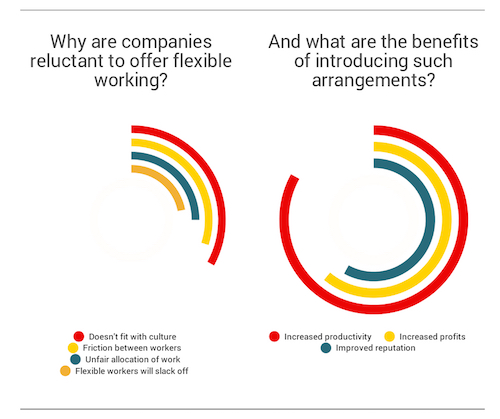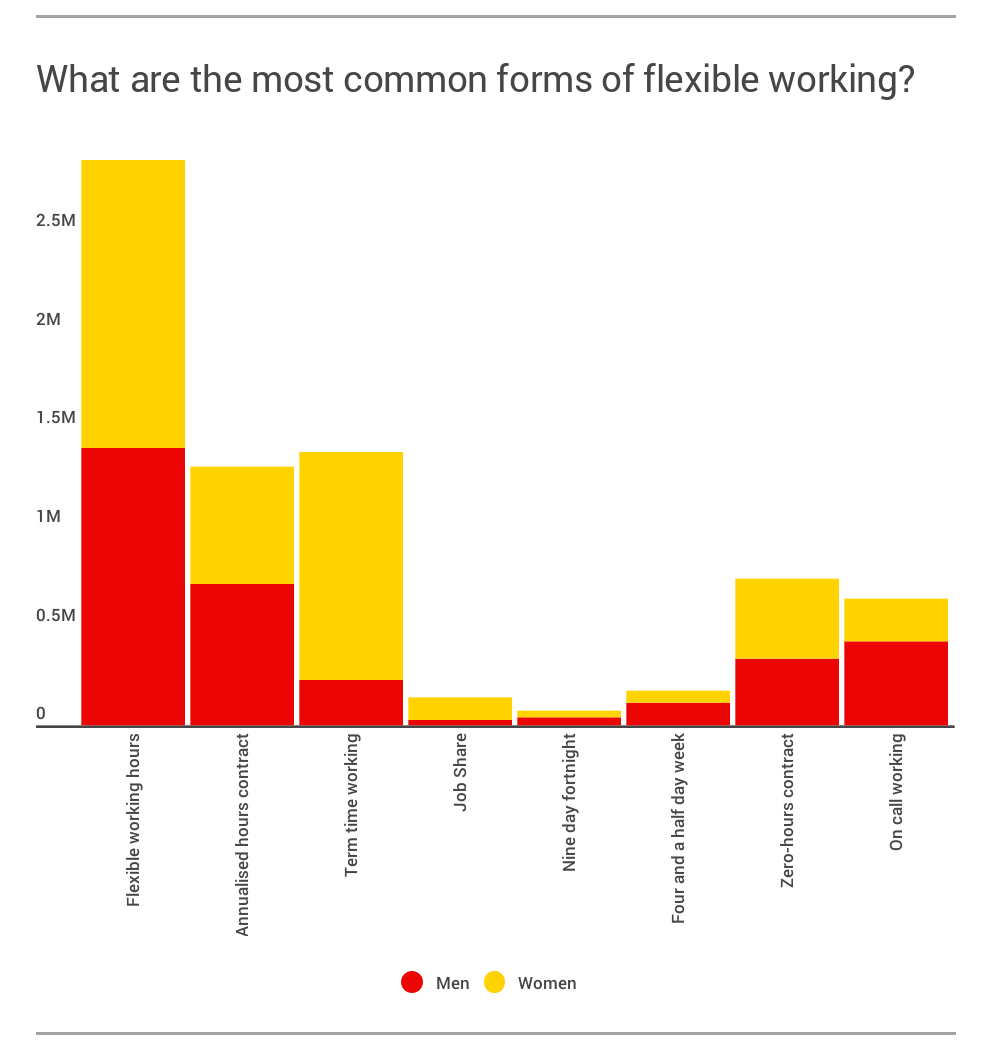Trend update: Why you need to take flexible working seriously
REBA members have asked to be informed about the big trends that will affect them in society, the economy, the workplace as well as in HR and reward.
We kick off the series by looking at how flexible working will change our workplaces.
Over to you Matt ...
The traditional office will be no more.
That’s the view of a mammoth 96% of UK adults who said they are certain that the traditional office is on its way out, according to a 2014 survey carried out by Virgin and YouGov.
Globally, 75% of organisations already offer flexible working to their staff, according to a 2016 Vodafone survey, Flexible: friend or foe?, and those companies that have made the switch are starting to reap the benefits.
The global survey found that 61% of respondents experienced an uptick in profits as a result of introducing flexible working, with 83% benefitting from an increase in productivity and 58% saying they believe that flexible working policies have had a positive impact on their organisation’s reputation.
Not bad for something that could be as simple as staff working from home once a week, or coming in an hour later to allow them to drop their kids off at school.
Lagging behind
In the UK, however, things have not been moving so fast.
The Work Foundation, part of Lancaster University, found in its February 2016 research report, Working Anywhere: A Winning Formula For Good Work?, that only a third of UK companies are offering flexible working opportunities to their staff.

This is despite the fact that from 30 June 2014 all employees working in the UK have the legal right to ask for flexible working – even if the traditional British reserve means many are reluctant to ask the question; 42% according to Mumsnet.
The Office for National Statistics estimates that between April and June 2015, 7.3 million British workers were employed under flexible working arrangements, with 744,000 of those employed on zero-hours contracts.
Whether or not zero-hours contracts offers flexibility for the worker or just the employer is a debate for another day, however.
What’s standing in the way of flexible working?
With the benefits of offering more flexible working arrangements clear to see, why are some companies still reluctant to make the jump?
Vodafone found that the most common barrier to the adoption of flexible working principles was a poor fit with company culture (33%), followed by concerns about friction between flexible and non-flexible working staff (30%) and fears about an unfair allocation of work (25%).

Companies must therefore be willing to adapt their working mentalities to accommodate new methods of working, with innovative management leading a cultural revolution from the top with clear direction as to how the new flexible working arrangements will work in practice.
Such initiatives could include rolling out ‘bring your own device’ policies for staff who spend a considerable amount of time working remotely, or providing funding for employees to buy their own choice of hardware to allow them to tailor their work tools to their own specific way of working.
Employees certainly seem willing to adapt their approaches to work, with 2016 research from the Centre for the Modern Family, Work Family Balance, revealing that 60% of UK workers want their employer to offer them a flexible working hours arrangement, and 47% want the opportunity to work from home.
Some 21% said they would even be willing to take a pay cut in return for working fewer hours.

The final word, however, should go to The Work Foundation, which predicts that the proportion of UK companies offering flexible working is expected to rise to 50% by 2017 and break through the 70% barrier by 2020.
So with flexible working set to reach a tipping point, and the office of the future soon to become a thing of the past, employers need to make sure they don’t fall behind the curve and lose out to their competitors when it comes to attracting and retaining the best workers.
You may even find there’s more profit to go around as well.
This article was written by Matt Scott, REBA's tame actuary.

He safeguards the reward community from hours of online research, his superstrength is delivering the numerical proof you need to make your reward business case.






